Table of contents
General considerations about dandelion tea
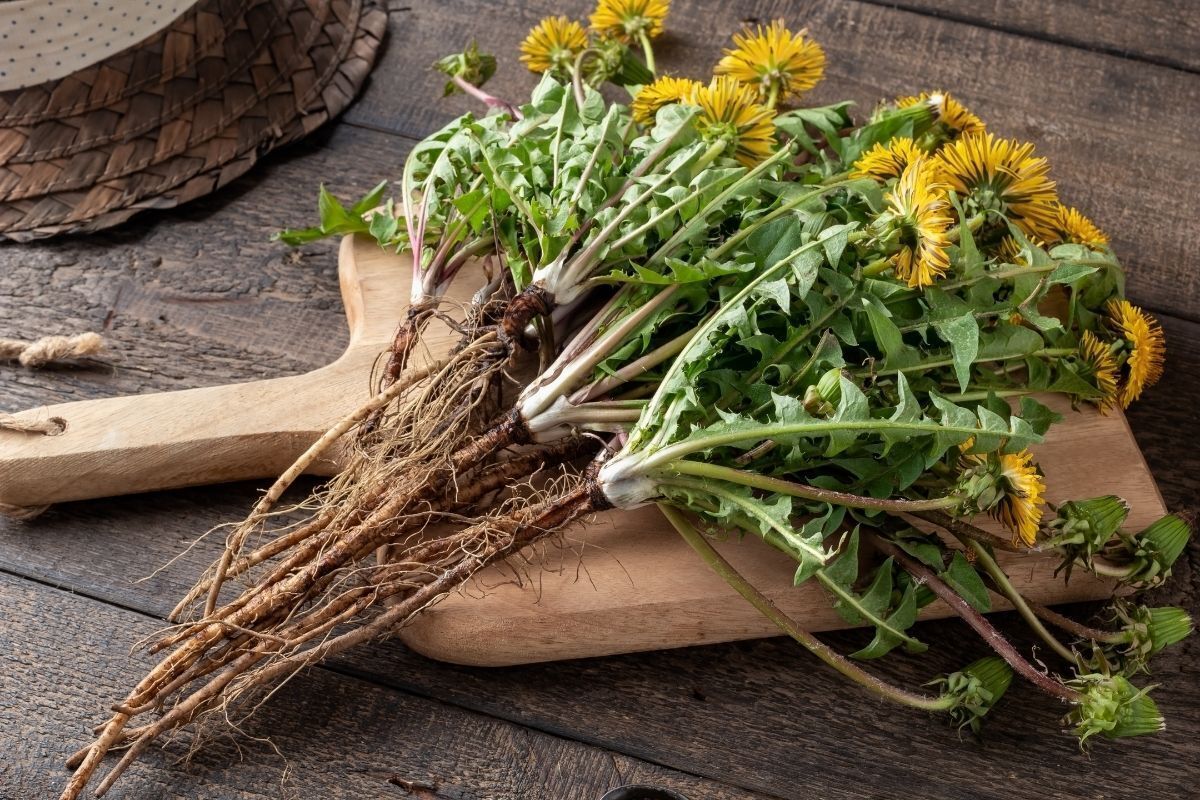
As it is a plant with nutritional properties, the dandelion, when used in the form of tea, helps in diuretic activities, assisting the body and contributing to the release of retained fluids.
Far beyond benefits for diuretic activities, dandelion can also be used in practices to control or combat diseases that affect the joints (rheumatism and gout, for example), since, with its anti-inflammatory properties, it helps to deflate feet, legs, hands and arms. Thus, joints are the areas most benefited by this infusion.
Many believe that the beautiful yellowish-tinged flowers of the plant are used to make dandelion tea. However, the truth is that you need to use the root, because in it there are volumes of antioxidants and the presence of naturally medicinal compounds.
Follow your reading and understand more about the ways to use, properties and how to make the recipe of an aromatic tea with dandelion. Check it out!
Dandelion, components and how to recognize
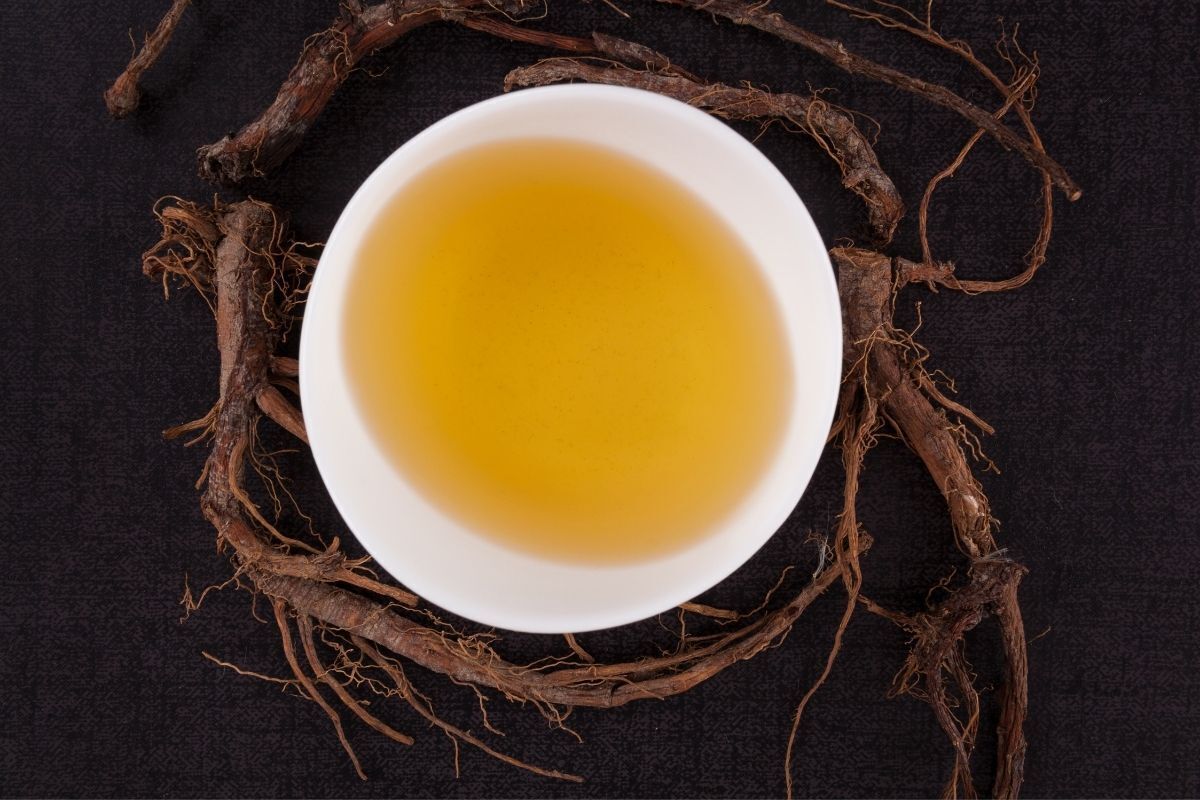
With varied benefits, the dandelion comes from regions of North America and also from countries in Europe. It is a plant that likes temperate climates, so it is naturally abundant in vitamins and minerals, as is the soil of these regions.
Because it is versatile, it can be consumed in various ways in cooking and beauty products, especially effectively for skin nutrition. Learn details about the use of this plant and include it in your diet, improving your health and well-being.
What is dandelion
Recognized as an independent plant because it naturally grows on its own, dandelion has characteristics of a strong plant. Its spontaneous condition and autonomous growth contribute to the richness of its properties and nutritional benefits.
Besides the name dandelion, in some regions of the world and Brazil it can also be found as: dog's lettuce, hope, chicory, love of man, pint, bitter, or taraxaco. It is also consumed by various types of insects, which take advantage of its pollen. The dandelion is found in fields and areas with grass and vegetation invoice.
Nutritional properties of the dandelion
The great presence of vitamins is a hallmark of the dandelion plant. It contains vitamin A, B6 complex vitamins, and vitamins E, K and C, which influence the proper functioning of the body and conduct the other minerals into the bloodstream. In addition, it still has the following components: calcium, magnesium, iron, potassium, copper, protein, inulin, pectin, thiamine and riboflavin.
Medicinal properties of the dandelion
For medicinal purposes or for curative purposes, dandelion is used because it has the following curative faculties: tonic characteristics for the liver system, diuretic abilities, filtering of blood flow, prevention of scurvy, contribution to the digestive process, antioxidant, stimulant, anti-inflammatory and laxative.
How to recognize the dandelion
Many people think that it is easy to find the dandelion plant, as they search basically for its flower. But, it is very common to confuse its flower with that of another plant, also found in fields with abundant vegetation: the bramble bush.
As the flower of the serralha also has yellow tones and the presence of seeds that fly with the wind, it is possible to confuse it with the dandelion. But, even so, it is possible to differentiate it by paying attention to its leaves and flowers.
The leaves of the dandelion plant are long (with the aspect of teeth), while in the mountainous plant, they are flat without relief or projections. In the mountainous plant, several flower buds come out on the same stem of the plant, while in the dandelion plant, only one flower comes out on each stem. Analyze calmly and find the correct plant from these comparisons.
Drug Interaction
Dandelion is a plant that contributes to health and brings relief to various discomforts of the body. However, it is necessary to observe its properties carefully and follow guidelines of experts when consuming it, because its constant use can contribute to deregulate and or change the functions of the body because of its elements, damaging the health of the body.
So, always remember that every plant with medicinal active ingredients causes different reactions in each type of organism. So, it is important to know your body's need for vitamins and nutrients to consume such plants in the most correct way.
It is up to you and your search for knowledge, using information from experts to select the plants that best suit your taste and that are pleasing in aroma. In addition, you should pay attention to the application and function of the plant. Always understand more and choose good plants that help your body function!
Dandelion tea preparation and other forms of consumption
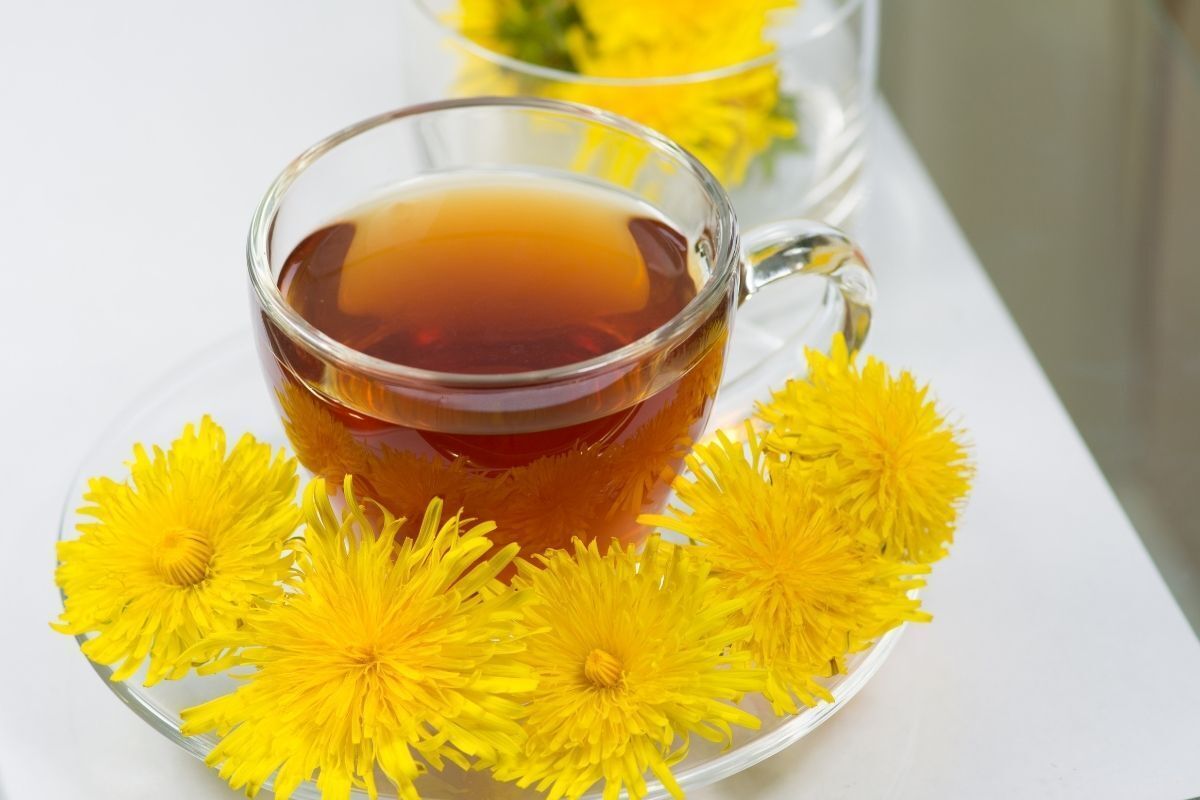
Dandelion tea is well suited for adults and also for children. It is responsible for pondering the increased generation of fluids like urine in the body.
Thus, with the increase in the generation of urine, the tea will help in the elimination of liquids in cases where one is prone to fluid retention. Learn about the ingredients and preparation of a delicious tea and learn more about how is the inclusion of this plant in cooking.
Ingredients and preparation of dandelion tea
Seek the following ingredients to make the recipe for dandelion tea: 15 grams of dried leaves and roots of the dandelion plant. See that there is no use of the dandelion flowers.
You should also use 250 ml of hot water. The leaves and root should be dry but also fresh. Choose to collect them or buy them very close to the time you are actually going to make the infusion.
To prepare the tea, put the hot water in a pot with a lid. Insert the leaves and the roots and let them rest in the hot water, closing well. Keep it this way for about 10 minutes. After that, strain and drink it. Remember that the tea should be consumed only 2 to 3 times a day.
Dandelion Juice
The dandelion can be included in your green juice, enhancing the properties of other ingredients and delivering diuretic, anti-inflammatory and antioxidant capabilities to the drink. To make the juice, you will need: 3 dandelion leaves, a small leaf of cabbage, some small slices of ginger, mint, turmeric, 1 apple cut and half a liter of coconut water.
Enter all ingredients in a blender and beat for about 2 minutes. If you can, consume the juice in sequence and without straining, the properties are also in the waste. But, if you do not like, remove them by straining. It can be consumed with ice chips and still stored in ice packs in the freezer for later consumption.
In cooking
As it is a versatile plant, the dandelion can be used with several applications in cooking, although in our daily life we do not know it. Dandelion can be used in pasta preparations, in which the leaves can be ground and added to the mixture of flour and water still in the preparation; included in salads to replace vegetables such as lettuce and also be used in sandwiches.
In beverages, the dandelion can compose the infusions of coffees (aromatizing even more, as the turmeric is used) and also be included in the processes of wine fermentation, potentiating the structure and also the aroma. As syrup, if mixed with lemon and watercress, its root helps to fortify the organism.
Benefits and what dandelion tea is used for
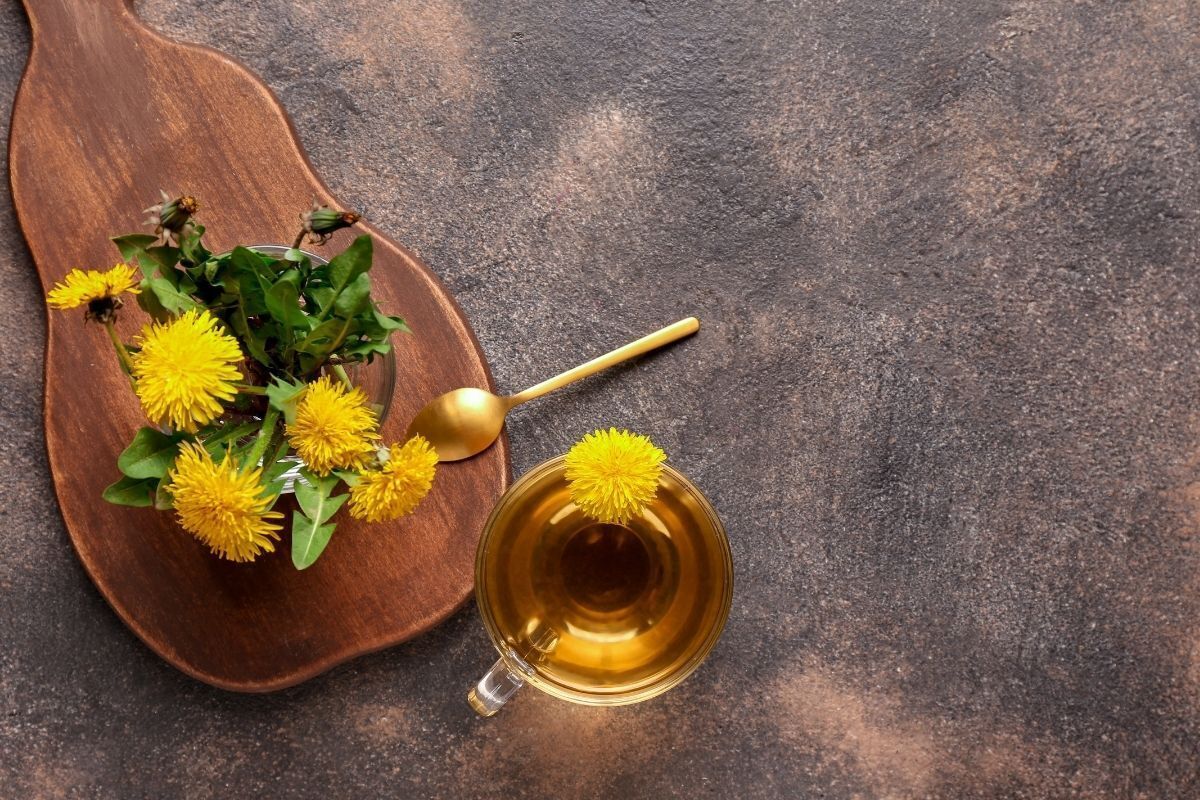
Dandelion tea is suggested to decrease the situations that lead to anemia in children and adults, assist in liver health and contribute to the improvement of the digestive process, even after a meal. In addition, it helps to regulate the body's sugar, with great presence in weight loss diets. Keep reading, and know all the benefits of this tea, taking advantage of it in your daily diet.
Decreases the risk of anemia
The vitamins contained in the plant help in the health of the blood, but it is the presence of the iron that contributes immensely to diminish the risk of anemia in children and adults. The B complex and also the proteins act to increase the structuring of new red blood cells, cells that generate the hemoglobin in the blood, making it healthier.
Good for liver health
Acting directly on the contribution of eliminating retained fluids from the body, dandelion tea helps the liver to filter even more toxins from the blood and, as a consequence, clean the channels that carry fluids to the gallbladder. Thus, the process is more intense and nourishes the liver to perform its function in a healthier way.
Helps the digestive process
In addition to all the other components already mentioned, fibers are still found in the dandelion. They have great action action in the digestive process. This is because they are able to prevent gastric and intestinal diseases. Soon, the waste to be expelled by the body gain greater consistency avoiding situations of diarrhea and or irritated bowel.
Regulates blood sugar levels
The use of dandelion tea by those who have diabetes is also especially recommended, as it can act as a stimulant in the production of insulin. In addition, the diuretic capacity of the plant helps in the production of urine and the elimination of this. This flow helps regulate sugar levels, keeping them low in the blood and avoiding the incidence of kidney problems.
Antioxidant, anti-inflammatory and diuretic action
For digestion problems, lack of appetite, kidney related diseases, liver and rheumatic diseases, dandelion tea is recommended for its antioxidant, anti-inflammatory and diuretic actions. The application of the tea, to contribute to the restoration of these pathologies, must be evaluated together with specialists and correctly inserted into the diet.
Source of vitamins A, B complex, C, E and K
It is not only in the root of the plant that vitamins are present. Throughout its entire length, including the sap (commonly called milk), there is the presence of vitamins of type A, B complex, C, E and K. Also in the leaves and even in the dried petals of the flower. Some parts of the plant can be consumed as teas, and others applied to wounds or used in sitz baths.
Slimming, reduction of bloating and PMS symptoms
Because it is low in calories and carbohydrates, and also contains a lot of diuretic action, dandelion tea is easily included by experts and nutritionists in diets aimed at weight loss and slimming, in which patients have a strong propensity to fluid retention.
According to studies, the plant not only improves metabolism for the production and elimination of fluids with the also facilitates the expulsion of toxins, improving blood flow, which will contribute in cramps and bloating during menstrual period.
Side effects, who should not consume and environment
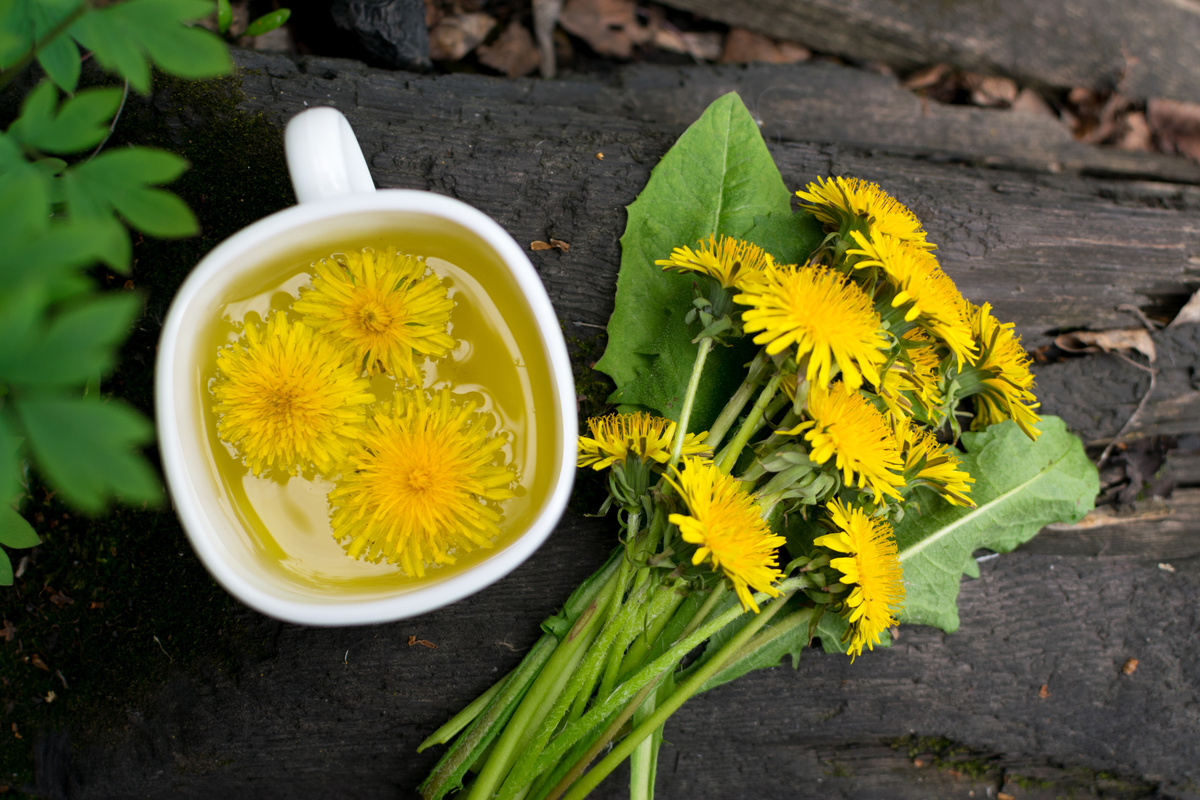
Nature offers several natural products for human consumption, but all should be used sparingly and under guidance of specialists or nutritionists. With the dandelion is no different. The use in excess or combined with other substances can bring unwanted effects. Learn more about the restrictions and take care to use correctly. Check it out!
Possible side effects of dandelion tea
If you are already taking some synthetic medication, you should seek to understand with your doctor whether or not the properties of dandelion tea can cancel out the active ingredients that make up your medicine. Although it is very rare, overuse of this tea can cause gastric and intestinal problems and even allergic reactions. Always consult a specialist if symptoms like these appear.
Who should not consume dandelion tea
The consumption of dandelion tea is not recommended for pregnant women due to its laxative properties and the presence of diuretic fibers. The same goes for mothers still in the process of breastfeeding, because the substances in the tea can alter the properties of breast milk. Adults or children with hypertension or a history of kidney or gallstones should also avoid consumption.
Dandelion consumption and the environment
By consuming resources that arise spontaneously in nature, as is the case of the dandelion plant, we are also contributing to the leveling and balancing of fauna in the environment, causing it to renew itself.
So, including the dandelion in our diet also helps to decrease the use of pesticides and inputs that can be used to slow its growth. So, value nature and the benefit it brings us.
Can dandelion tea help in the treatment of the new coronavirus?
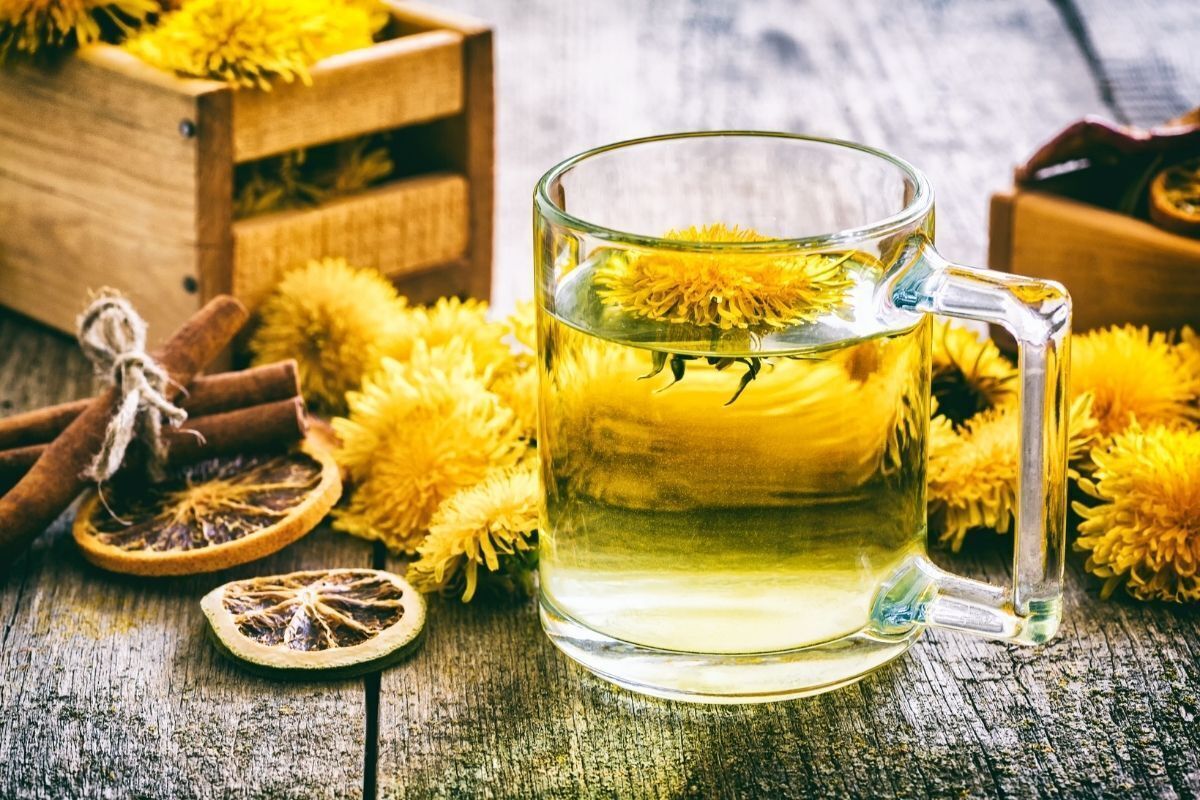
There is no scientific proof that dandelion tea or consumption of any other part of the plant can help in the treatment or incidence of the new coronavirus.
Although it is recommended as an infusion to aid in the treatment of viruses such as influenza and flu viruses, there are no indications yet that this plant or tea can treat the new coronavirus naturally.
Currently, only the vaccines, the use of the mask and social distancing are the best allies in the fight against Covid-19. So, be aware of the symptoms and seek a doctor to receive the necessary and proper guidance. The coronavirus is a pandemic that has been treated by health authorities and the recommendations do not include the use of alternative medicinal treatments.
Keep in mind that plants like dandelion can be used in daily life to help in the treatment of the ailments cited and in their prevention, but they do not have effective healing powers by themselves. Therefore, do not hesitate to seek a doctor whenever necessary.

